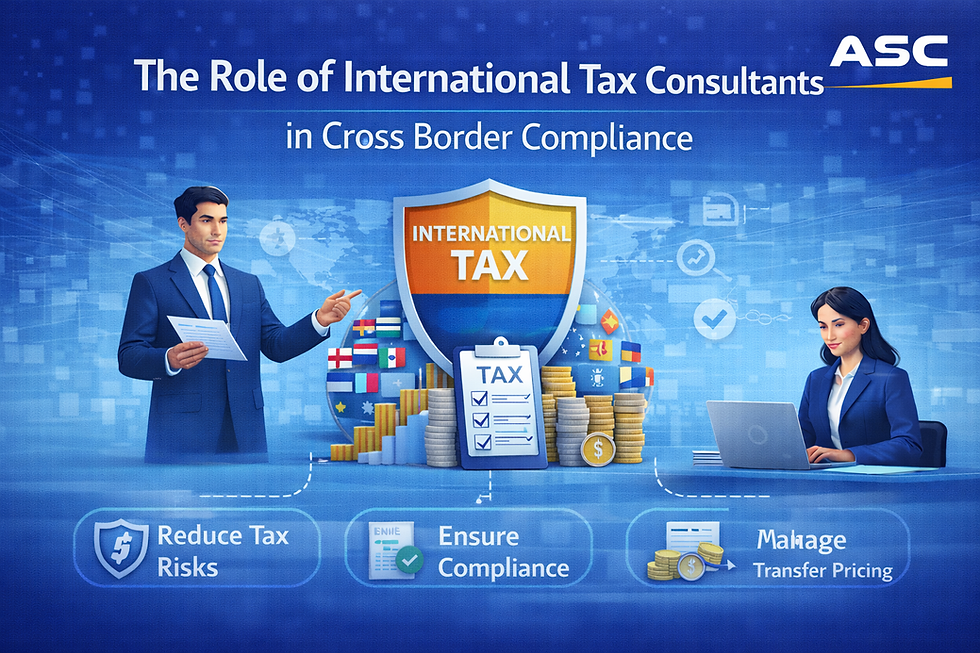Why your business needs a WPC ETA certificate for wireless devices in India
- ASC Group
- Oct 14, 2024
- 4 min read
Businesses looking to enter India's market, where the demand for wireless technology is growing, must ensure their products comply with national regulatory requirements. The WPC ETA Certificate is a certification that's essential for importing or selling wireless products such as Bluetooth- and Wi-Fi enabled devices. This certification is issued by the Wireless Planning and Coordination branch of the Ministry of Communications. It ensures that the products are compliant with the national radiofrequency regulations.
This article will explore the WPC certification process, its importance, and how ASC Group can help businesses obtain WPC licenses for sales and imports in India.
What is WPC ETA certification?
WPC (Wireless Planning & Coordination), the national authority for radiofrequency spectrum management, is located in India. Before being imported or sold in India, any device that uses radio or wireless technology, such as Bluetooth, WiFi, or RFID, must have an Equipment Type approval (ETA) certification. The ETA certification ensures that wireless products comply with frequency spectrum regulations and operate within safe and permissible limitations.
Why do you need a WPC Certificate?
Anyone planning to manufacture or import wireless-enabled products in India will need a WPC certificate. Whether you're a manufacturer or importer, obtaining an ETA certification is essential to ensure your products meet safety and compliance standards.
The WPC ETA Certificate will be required in the following situations:
Bluetooth and Wi-Fi devices
RFID-based products
Zigbee devices
- Laptops, smartwatches and mobile phones
Types of WPC Approval
WPC licenses are available in three main types, depending on your business.
1. This license is for companies that do not provide network services directly but need wireless devices to run their business. It includes the sub-categories of:
- Import license: Required when importing wireless devices into India.
Dealer Possession Licence:** This is issued to wireless product dealers and distributors.
- Non Dealer Possession Licence: Individuals or organizations who do not sell wireless products, but require possession for specific reasons.
2. Network license: Required for companies that provide communication services such as ISPs or DTH operators.
- Internet Service Provider Licenses (ISP ): issued to companies that provide internet services in India.
- Experimental license: Required to conduct research or experiments with wireless devices.
3. Equipment type approval (ETA ): - This license is essential for manufacturers and suppliers of wirelessly enabled products. This ensures that the devices are compliant with the de-licensed frequencies band regulations.
WPC ETA Certification process
To ensure compliance with all applicable regulations, the process to obtain a WPC ETA certification involves several steps:
1. RF Testing and Report Generating: In order to begin the WPC ETA Registration process, businesses will need to submit a radiofrequency testing report from an accredited laboratory. This report verifies the device's compliance with the frequency regulation.
2. Document preparation: Companies must submit important documents, such as a company registration copy, technical product details, and a RF test report. To handle the process, foreign manufacturers must appoint a Authorized Indian Rep (AIR).
3. Online Application: **Once the documents have been prepared, the business will need to apply via the Saral Sanchar Online Portal by providing all the necessary information and paying government fees.
4. Document verification: WPC officials review carefully the documents submitted and the RF report. Businesses will be notified if any additional information is needed or if corrections need to be made.
5. Granting of WPC ETA Certificate: After the documents and tests reports have been verified, WPC issues an ETA certificate allowing for the product to either be imported or made in India.
Documents Required for WPC ETA certification
Businesses must be able to provide the following:
Documents relating to company registration
- GST registration certificate
Proof of the identity and address of an authorized representative
- Report of a radiofrequency test from a NABL accredited lab
- Specifications of the product
- Importer Exporter Code (IEC) for imports
- Authorization Letter for Foreign Manufacturers
Proof of Online Payment
Importance RF Test Reports for WPC ETA Approval
The radiofrequency test report is a crucial part of the WPC ETA Certification. This report confirms that the device is operating within the permitted frequency bands and without interference. To avoid legal issues, and to ensure the safe use of wireless spectrum, compliance with frequency standards must be met. To obtain the RF report required for ETA approval, businesses must have their products tested by a certified lab.
How ASC Group can help with WPC ETA Certification
ASC Group provides end-to-end consulting and assistance to obtain WPC ETA Certification. Our services include:
- Consultation: Comprehensive guidance on ETA Certification and WPC Compliance.
- Application filing: Preparing all documents necessary on behalf of your business and submitting them.
- Testing assistance: Coordinate with accredited laboratories to obtain RF tests reports.
- Department liaison: Handling communications with WPC officials, and responding to any questions or requests for additional documentation.
- Final certification: Assuring timely issuance the WPC ETA certificates for your product.
Conclusion
Businesses dealing with wireless devices in India must obtain a WPC ETA Certificate. The certification process ensures devices meet regulatory standards. This protects consumers and allows companies to sell legally their products on the Indian market. ASC Group can help businesses navigate the complicated WPC certification process, ensuring compliance with national regulations.




Comments